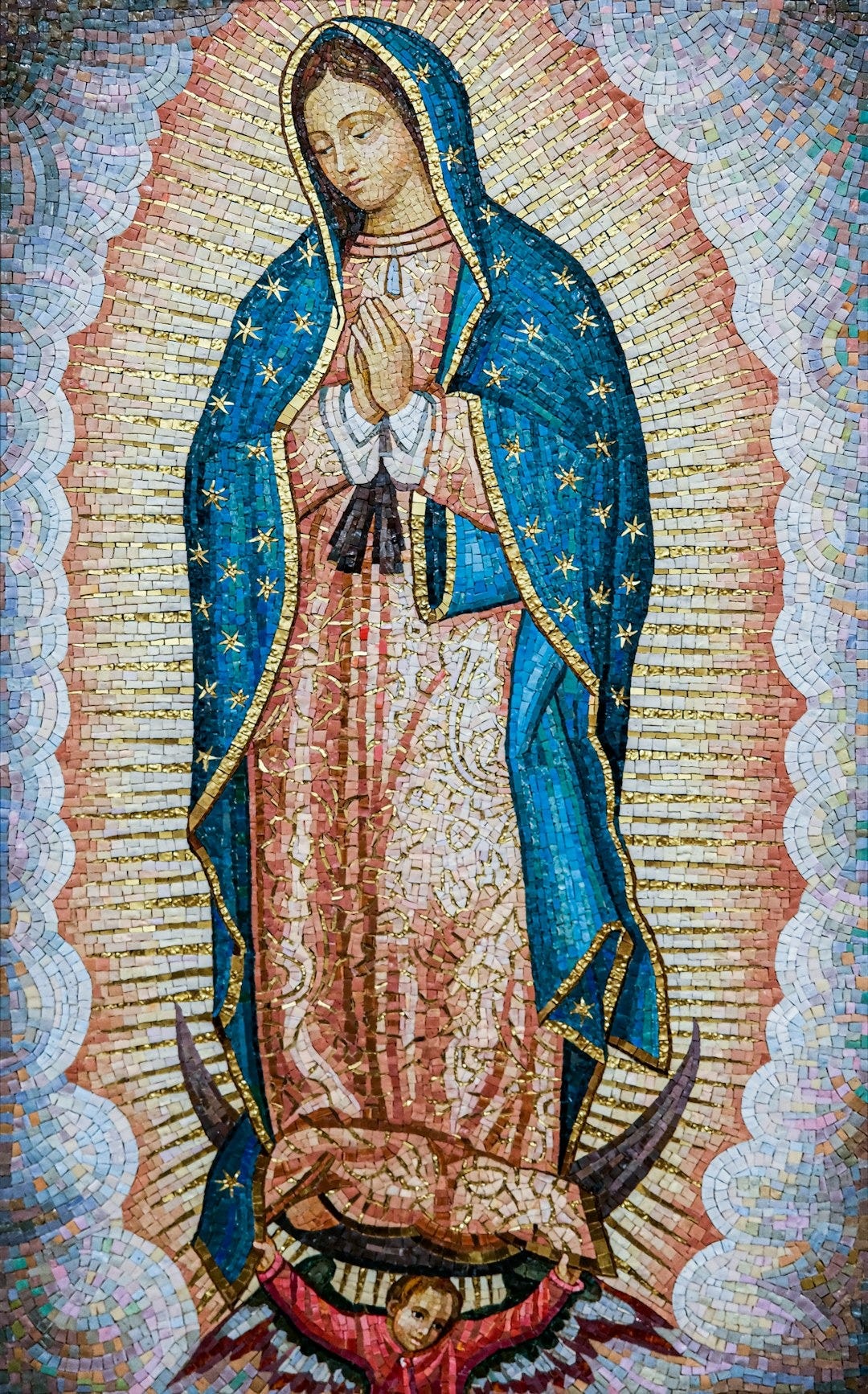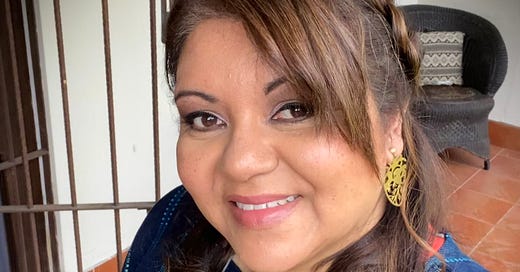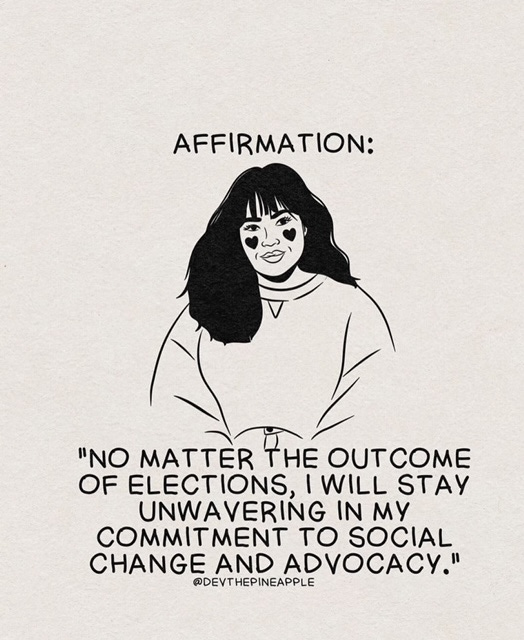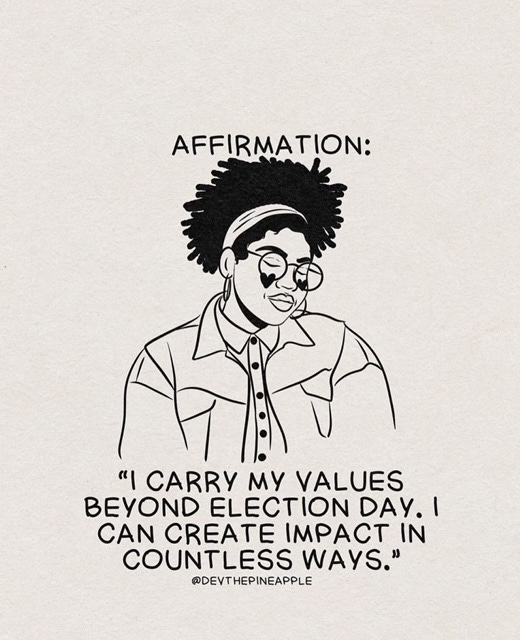In August, I returned to the U.S. from a year and half living in Mexico City. Two months later, the Dodgers won the World Series. And then a week later, horror of horrors, the U.S. elected a populist demagogue…
…again.

Lots of people have asked me if I regret coming back, especially those who are themselves now looking to live abroad. Given that Trump has promised to deport immigrants, even naturalized ones like me, and has laid the blame for every negative thing happening in the U.S. at the feet of immigrants, it does, indeed, seem like really inopportune timing.
Truthfully, I came back for a few reasons—some of which I can’t share in a public forum like this one—but I don’t regret it, even with Trump’s election. If I learned anything living abroad this time, not as a teacher or a Christian service worker or as a student, it’s that I’m a U.S. American. I feel most at home here (now in the D.C. area), and all my stuff is here. My family is mostly here in the U.S., and I’ve attained most of my education and all my work experience here. I am most comfortable and most fluent in American English. This is where I’ve made my home since I was 9-years-old. I’ve been naturalized to this place.
Being Naturalized
In her beautiful book Braiding Sweetgrass, Robin Wall Kimmerer describes what naturalization means:
Being naturalized to place means to live as if this is the land that feeds you, as if these are the streams from which you drink, that build your body and fill your spirit. To become naturalized is to know that your ancestors lie in this ground. Here you will give your gifts and meet your responsibilities. To become naturalized is to live as if your children’s future matters, to take care of the land as if our lives and the lives of all our relatives depend on it. Because they do.
I’ve written so much about immigration in my short writing career, and the theme that has come up for me over and over again is that the question of immigration is ultimately one of belonging. Where do I belong? Where do my people and I belong? Living in liminal space is fine and dandy if you’re speaking metaphorically, but it’s not so great literally. Frankly, it sucks. Because we all want to belong somewhere.
My time living in Mexico taught me that this is my home, right here among the red people of the voting map who supported a man who called Latines like me criminals, rapists, pet eaters, and garbage…just because we are immigrants. Fortunately, I do live in a blue state.
The Mestiza Guadalupe?
Earlier this year, my friend Sarah came to visit me in Mexico City, and we visited the Basilica of Our Lady of Guadalupe. The only other time I’d been to the Basilica was when another friend visited and wanted to attend mass there, which I reluctantly agreed to do. It’s an interesting structure, but it’s far from where I lived, and it’s always crowded (so much so that there are actual moving walkways in front of the altar, so you don’t just stand there and gawk like an awkward tourist).

The first time I attended I listened to a priest talk about Guadalupe, the appearance of Mary in the Americas but as an indigenous, brown-skinned woman who speaks Nahuatl, the language of the Aztecs. Those are the basic facts about Our Lady of Guadalupe and what has made her beloved and revered in many Latin American countries…
…except the priest didn’t speak of her that way. Instead, he spoke of her as the mestiza virgin Mary. It might not sound like it, but there is a big difference between being mestiza and being indigenous.
A mestizo is a person of mixed race descent, especially indigenous and European. In that priest’s estimation, Guadalupe was not indigenous, but mestiza…like him. This was news to me, and yet it’s not that surprising since most of us want to create the divine in our own image.
Many of us Latines in the U.S. don’t like the term mestizo/a because it has a racist history—it was created to distance us from our indigenous roots. Many Latines want to be associated with Europeans and not with indigenous people who are seen as less civilized, less sophisticated, and, let’s just put it bluntly, less human. To be a mestizo is to be half-human and, thus, more acceptable. That’s the connotation of the word mestizo, no matter its actual definition in the dictionary.
And I believe it’s the reason so many Latines are drawn to Trump and his xenophobic rhetoric—aligning with whiteness even against their own people.
On our drive home from the Basilica, the tour guide, an educated Mexican woman who runs her own business, started telling me about all the issues she has with all the immigrants in Mexico. There are migrants from the U.S., Canada, Haiti, Nicaragua, Venezuela, Colombia, Russia to name just a few.
“Would you believe some restaurants aren’t serving spicy salsas to accommodate these people?” She was incredulous and especially emphasized “these people.”
I nodded but asked, “But isn’t that a business decision made by the owner of the restaurant? How are the immigrants to blame for that?”
She then clarified that she’s not xenophobic, but she’s concerned about the way immigrants are changing Mexican culture—they’re just not assimilating. At this point, I’m annoyed and tired, so I get salty.
“You sound just like Trump,” I said. And we were quiet the rest of the ride.
And the truth is that she does. And so did a lot of Mexicans I met in the city. Even the woman who cleaned my apartment weekly had issues with all the Haitians in her neighborhood, though she grudgingly acknowledged that they are hard workers and are doing the work nobody else wants to do. I let her know that the way she speaks about Haitians: unwanted but hard working—is the way many Americans regard Mexican immigrants in the U.S. She seemed unfazed by that information.
Xenophobic Immigrants
Maybe it’s not that surprising to you that there are Mexicans who also don’t want immigrants in their country. But did you know that there are immigrants who also don’t like other immigrants? I call it the “shut the door behind me” phenomenon because nobody is more anti-immigrant than an immigrant with legal status.
No one is more anti-immigrant than an immigrant with legal status.
Because of the lure of white supremacy (hey, maybe I can become a secondary white person and escape the hardship of being othered and discriminated against), which comes with the pressure to assimilate, many immigrants, particularly those who have been in the country a long time and have permanent residency and/or came the “legal” way, strongly oppose welcoming immigration policies. I want to be clear that that this is a survival strategy. As I said earlier, we all have the need to belong, and all immigrants have historically suffered the pressure to abandon their own people, language, and culture and assimilate. This was the “melting pot” mentality that was promoted forever.
A friend of mine says that white supremacy is a helluva drug. Indeed. Nobody wants to suffer or feel like they don’t belong, and assimilation is an insidious form of white supremacy because you don’t even realize you’re assimilating not just to language and culture but to systems of oppression, even your own oppression.
Home
All of that said, I’m glad to be back because this is my country as much as it is Trump’s and his supporters. And because you really can’t escape xenophobia no matter where you go. It’s a human problem not a uniquely American one. The truth is that the whole world has become less welcoming to immigrants, not just the U.S. But this is where I happen to be living.
So I’m staying.
And there will be a lot of work to do to care for immigrants in the coming administration. Trump is no longer focused on building a wall at the southern border to keep immigrants out—now he is focused on a mass deportation plan that will be devasting to immigrants and their families if it comes to pass. The writer Rebecca Solnit puts it this way:
They want you to feel powerless and surrender and let them trample everything and you are not going to let them. You are not giving up, and neither am I. The fact that we cannot save everything does not mean we cannot save anything, and everything we can save is worth saving.
There will be work to do for all of us. Someone shared these affirmations on Instagram, and they have become my daily affirmations to maintain a glimmer of hope.
I will do what is in my power to care for my immigrant neighbors and to work for the country that I want. Because it’s my country, too.
How are you doing in the aftermath of the election? I hope you’re taking good care of yourself and finding ways to keep that flicker of hope burning.
Home is not where you are born; home is where all your attempts to escape cease.
—Naguib Mahfouz






Thank you for this. There is SO much to think about. I don’t get to travel much, and I’ve often wondered what attitudes are like in 🇲🇽. I’m a Latine who works in healthcare here in the US. I take care of so many immigrants… My heart bleeds for them, for the kiddos that attend schools with mine. I live & work alongside many folks who were born here or who have obtained their citizenship, and it’s so hard to understand that “close the door behind you” mentality that you write about. It stings and feels like a betrayal of our ancestors. I’m constantly feeling disoriented, having to remind myself that we’re not a monolith… Thanks again for your thoughtful perspective, and for your encouragement. Abrazos desde el desierto.❤️
This is really good, Karen. And it is true that xenophobia is everywhere. Everyone has opinions about the "other". I was in Kenya and they were complaining about the Somalis who were buying up land and businesses. And there is always the struggle between the rich and the poor. But our committment to following God and his way of justice and peace stays the same wherever we are.
Thank you.